CENTCOM, IDF Commanders Meet To Discuss Mideast Integrated Defense System
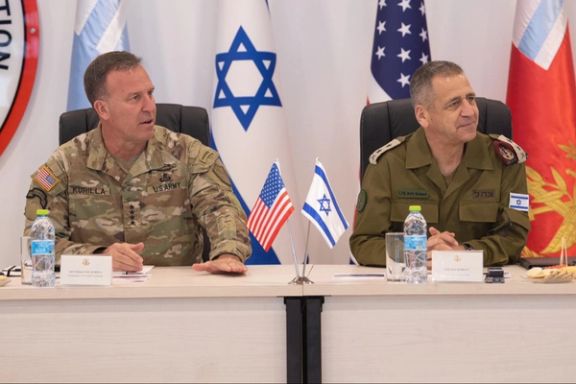
The US military commander in the Middle East met Sunday with the commander of the Israeli Defense Force to discuss the integrated air and missile defense system.

The US military commander in the Middle East met Sunday with the commander of the Israeli Defense Force to discuss the integrated air and missile defense system.
CENTCOM Commander General Michael Kurilla and IDF Chief of Staff Lt General Aviv Kochavi discussed “he importance of an integrated air and missile defense system, as well as the continued need for strong regional security cooperation.”
According to a statement by CENTCOM Public Affairs, Kurilla told Kochavi “As President Biden said earlier this week in Israel, and Secretary of Defense Lloyd Austin echoed, the United States’ commitment to Israel remains ironclad. Regional security remains paramount for both CENTCOM and the IDF.”
Israel's Minister of Defense Benny Gantz, who also met with Kurilla during his visit to Jerusalem and Tel Aviv, boasted about “the unparalleled defense relations between Israel and the US,” highlighting CENTCOM’s important role in maintaining regional peace and stability.
In a speech at a ceremony marking the change of the military’s Home Front Command chief, Kohavi said Sunday that it is a “moral obligation and a national security order” to prepare a military response against Iran’s nuclear program.
“Preparing the home front for war is a task that must be accelerated in the coming years, especially in light of the possibility that we will be required to act against the nuclear threat. The IDF continues to prepare vigorously for an attack on Iran,” he said.
Tehran has repeatedly warned regional Arab countries over the plan to launch the air defense system with the United States and Israel to confront Iran's missiles and drones.
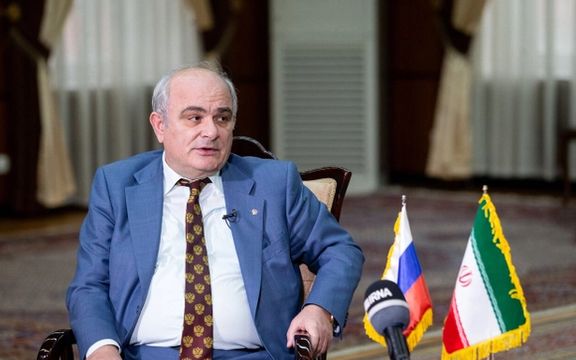
Russia's ambassador To Tehran has again made headlines for all the wrong reasons as Ali Khamenei is expecting a meeting with Russian leader Vladimir Putin soon.
Iranian media have often perceived Levan Dzhagaryan's (Jagarian) controversial behavior as intervention in Iran's internal affairs or as flat insults although he does not seem to be bothered by the accusations. On social media, however, and recently in Tehran media Iranians have been demanding an answer to the ambassador's outrageous and provocative remarks.
Khabar Online, a moderate conservative news outlet in Tehran asked on Sunday, July 17, "Where are the government and the foreign ministry" after Dzhagariantold Sharq newspaper in Tehran the day before that "We have always been on Iran's side, but the West want to bring their absurd values such as homosexuality and other dirty things to Iran but we object to that!"
Many Iranians on social media reminded the ambassador that Russia is a large producer of pornography in the world.
The ambassador also said in the same interview: "There are things that I don’t want to reveal, but what is clear is that Iran owes us hundreds of millions of euros and doesn’t pay." Some Iranians on social media perceived this as a prelude to plundering Iran's resources as the alleged debt is about decades of Russia's partnership with the Islamic Republic in constructing the Bushehr nuclear power plant that contributes little to Iran’s electricity.
In an earlier remark, Dzhagaryan had said that "hijab and the lack of alcoholic drinks in Iran prevent Russian tourists from coming to Iran." His remarks which contained criticism of the Islamic Republic's underlying values, was harshly criticized by former Iranian lawmaker Ali Motahari.
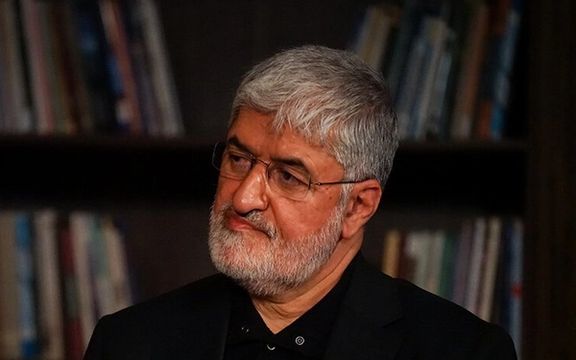
At the same time, Motahari and many other Iranians on social media criticized the Raisi administration's silence in the face of Dzhagaryan's comments. The ambassador's earlier remarks particularly angered Iranian journalists when he told them not to call Russia's war against Ukraine an "invasion." The journalists charged that the Raisi administration does not object to Dzhagaryan because it does not want to annoy Russia which is Tehran's close ally.
In another development, when President Biden and the first lady congratulated Iranians on Nowruz, Dzhagarayan dismissed Biden's gesture as "hypocrisy" and reminded that Biden has imposed sanctions on Iran.
These and several other remarks and actions by the ambassador have most certainly not been constructive while at a higher level, Iran and Russia do a lot to pretend to be allies against the United States and Europe.
The Islamic Republic has gone out of its way to give Russians the authority to intervene during Iran's negotiations with the West to revive the 2015 nuclear deal.
Although Putin's visit to Tehran is officially within the frameworks of the Astana Peace Process for Syria, the initiative is long dead and Putin, Turkey's Recep Tayyip Erdogan and Iran's Khamenei are part of the problem in the Syrian civil war rather than being able to offer solutions.
Putin is most likely visiting Iran to personally convey his messages to Khamenei who never travels abroad and have a meeting with Erdogan to sort out problems about seizing Russian food cargos going through the Bosporus, based on arrangements with NATO.
Meanwhile, Eurasia expert Mahmoud Shouri told reporters in Tehran that Cold War geopolitical demarcations are being revived. He said the meeting in Tehran could be part of the initiatives to forge new alliances. He added in view of the fact that Biden did not gain much during his regional tour, Russia must be thinking of leaving the void Washington has left behind in the region.
What Khamenei can get out of the meeting is pretending that new alliances in the Middle East have not totally isolated him as he can at least host Putin.
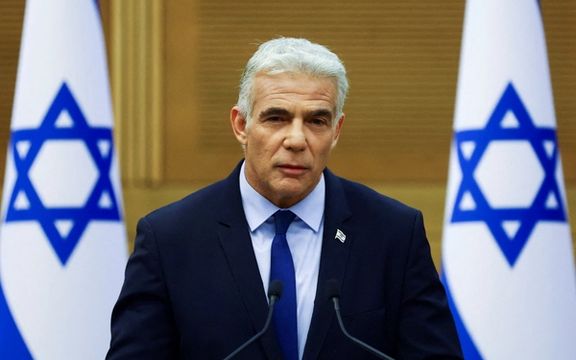
Israeli Prime Minister Yair Lapid says US and Israel do not “necessarily agree” over a credible military option against Iran but Israel maintains complete freedom to act against Tehran.
At the weekly cabinet meeting on Sunday, Lapid said, “We came and asked to introduce a credible military threat during President Biden’s visit. We want the basis [for world power’s negotiations with Iran] to be a credible military threat. We didn’t necessarily agree on this with the Americans at the present time.”
He said he “made it clear to the president and his team that Israel opposes the nuclear deal and maintains complete freedom to act, diplomatically and operationally, in the face of the Iranian nuclear program.”
Lapid also described Biden’s trip to Israel “a historic visit, with achievements in diplomacy, security and the economy.”
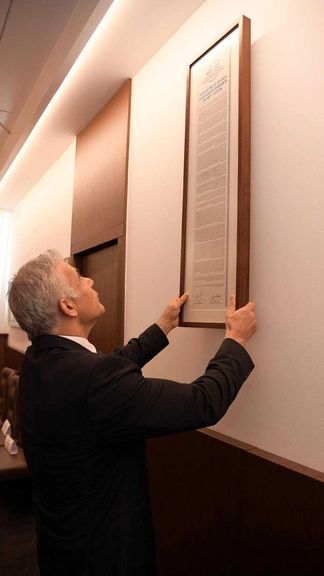
Lapid’s office also issued a photo of him hanging up the so-called Jerusalem Declaration -- signed by Lapid and Biden in which Washington committed to “use all elements of its national power” to ensure Iran never acquires a nuclear weapon -- in the cabinet meeting room in Jerusalem. Lapid said he was hanging the statement “in the place intended for historical declarations.”
Washington pledged further “defense assistance” on top of the $38 billion 10-year Memorandum of Understanding in 2016 under President Barack Obama and the $1-billion assistance after the 2021 Israeli-Palestinian violence centered on Gaza.
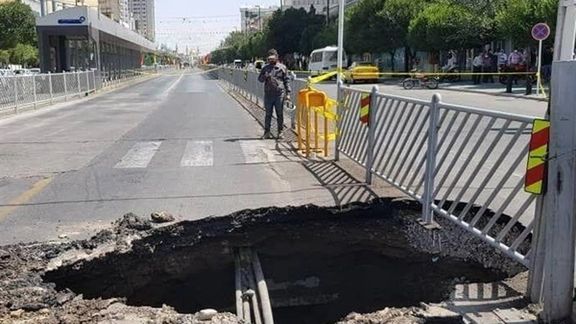
Amid serious warnings about land subsidence across Iran, a member of Tehran City Council has said the situation is “hazardous” in a few regions of the capital.
The deputy head of the environmental protection committee of the capital’s City Council, Mehdi Babaee, told ILNA on Sunday that ground subsidence in the southwestern districts of Tehran has reached a dangerous level, to about 20 centimeters per year.
"We are developing a plan in Tehran city council, according to which the municipality will be required to use surface water recycling for water consumption in urban areas, including irrigation of green spaces,” he said, noting that the implementation of such a plan can lead to a reduction in the extraction of the capital's underground water resources and reduce the rate of land subsidence in the city.
According to the latest official data by the geological organization of the country, the rate of subsidence in the plains around Tehran was between 17 and 24 centimeters per year.
Tehran is facing a serious problem of rapid ground subsidence due to decreasing ground water levels, imagery consulting firm Intel Lab reported in July 2021. Intel Lab published a series of satellite imagery showing relative levels of sinking ground between January 2020 and April 2021. In some areas the ground had sunk up to 25 centimeters or more than 8 inches.
Depletion of underground water is one of the main causes for ground subsidence that can threaten not only cities but also agricultural lands. Moreover, land subsidence is not limited to cities and their surrounding plains. In many other areas in Iran cracks and huge hollows that resemble meteor craters have appeared in the ground in recent years.
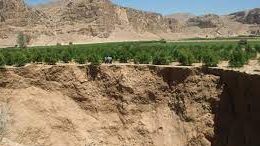
Ali Saberi, a geologist, said last year that one million hectares of land in the country is affected by subsidence, blaming unlimited extraction of ground water as the main cause of the phenomenon.
Alireza Shahidi, the head of Iran’s Geological Organization said in 2021 that land subsidence is a “disaster” and a “silent earthquake” that can lead to political and security crises.
Iran’s natural disaster taskforce says 20 million urban residents face ground subsidence in 29 of 31 provinces, warning about agricultural overuse of water. Ali Beytollahi, the head of the taskforce said Iran has not come up with policies and rules to deal with the disaster, as drought and wasteful irrigation methods are depleting groundwater reserves, adding that unless serious action is taken, the country can soon reach a point of no return.
According to experts, the country has less than ten years to deal with dangerous land subsidence because of over-extraction of ground water.
According to Gholam-Ali Jafarzadeh, the head of the National Cartography Center, 80 percent of the groundwater is withdrawn annually in Iran, adding that over the past decades, some of the aquifer levels dropped by 100 centimeters.
In addition to Inefficient irrigation methods, digging illegal wells is the other cause of subsidence, as out of 50,000 wells pumping underground water resources in the capital, 30,000 are illegal.
Iran has been suffering from drought for more than a decade and this year lack of precipitation is larming. Over the next 40 years, the country's temperature will rise by 2.6 degrees Celsius, which will make matters worse.
As drought persists, more underground water is exploited for irrigation, depleting natural reservoirs formed during thousands of years. This has aggravated ground subsidence, alarming government officials who have circulated confidential memos on the subject.
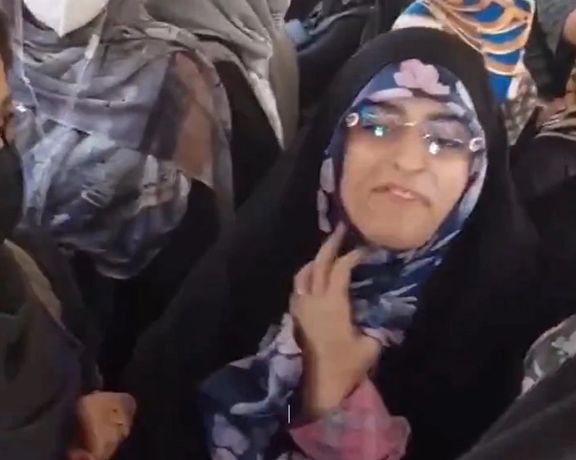
After a video of a woman enforcing hijab rules quarreling with a female bus rider became viral, IRGC affiliated Fars news said the hijab violator has been arrested.
The video started circulating on social media on Saturday, a few days after Iranian women launched a campaign against the compulsory Islamic dress code, or hijab.
In the video a woman fully covered by a long, black ‘chador’ – which is typical of the supporters of the Islamic Republic – is seen shouting at a woman who had unveiled in a transit bus. The quarrel became so frantic that other passengers intervened and kicked the hijab enforcer out of the bus. She was also recording the incident and threatening the hijab-protester to send it to the Revolutionary Guards.
Some people on social media express doubt that police has been able to identify the hijab challenger in a matter of hours, and they regard the news by the Fars as only a tactic to frighten people whose support for anti-hijab protests are growing.
In another video released this week, a man started berating a few teenage girls who had removed their hijab at a subway station in Tehran, but other people came to help and sent the angry man away.
However, Iran has started arresting women who participated in the nationwide civil disobedience campaign against the compulsory Islamic dress code this week.
On July 12, following a call by women’s rights activists for civil disobedience with the hashtag of ‘No2Hijab’ social media exploded with dozens of videos and photos of women unveiling in public.
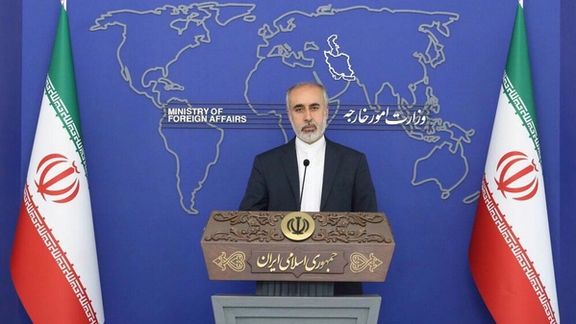
Following President Joe Biden’s Middle East tour, Iran says the United States seeks to foment crisis in the region through its policy of Iranophobia.
Iran's Foreign Ministry spokesman Nasser Kanaani made the remarks on July 16, in reaction to Biden’s address to a summit of regional Arab states in the Saudi city of Jeddah, accusing the Islamic Republic of destabilizing activities in the region.
Rejecting the US president’s remarks as unacceptable and unfounded, Kanaani said, "Such groundless allegations are in line with Washington’s policy to incite sedition and create tension in the region... by resorting to its failed policy of Iranophobia.”
“False accusations that the United States levels against Iran’s peaceful nuclear program while turning a blind eye to several decades of the Zionist regime’s deception as a regime that is not a member of the nuclear Non-Proliferation Treaty (NPT) while possessing the biggest nuclear arsenal in the region, are a major sign of hypocrisy of the US government,” he added.
Biden said during his tour that "Around the world, we’re seeing efforts to undermine the rules-based order: with China’s increasingly coercive actions in the Indo-Pacific and beyond; with Russia’s brutal and unprovoked war against its neighboring Ukraine; and with Iran’s destabilizing activities," emphasizing that “It’s only becoming clear to me how closely interwoven America’s interests are with the successes of the Middle East…We will not walk away and leave a vacuum to be filled by China, Russia or Iran.”